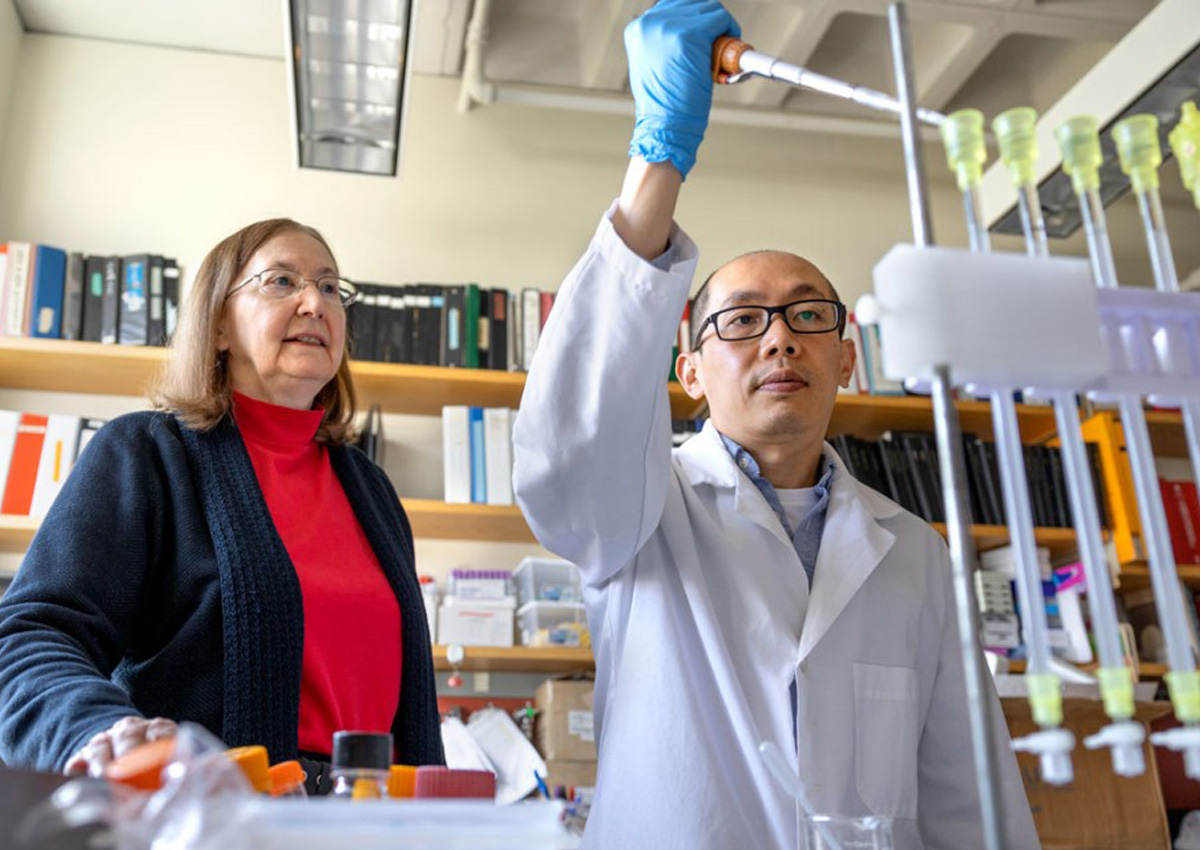
Scientists Resurrect Ancient Rubisco to Improve Photosynthesis
April 27, 2022| |
A Cornell University study published in Science Advances describes a breakthrough in the quest to improve photosynthesis in certain crops, a step toward adapting plants to climate changes and increasing yields to feed the world's projected 9 billion population by 2050.
Senior author Maureen Hanson and first author Myat Lin developed a computational technique to predict favorable gene sequences that make Rubisco, the key plant enzyme for photosynthesis. The technique identified promising candidate enzymes that could be engineered into modern crops and, ultimately, make photosynthesis more efficient and increase crop yields. The technique relied on evolutionary history, where researchers predicted Rubisco genes from 20-30 million years ago. By resurrecting ancient Rubisco, early results show promise for the development of faster, more efficient Rubisco enzymes to incorporate into crops and help them adapt to hot, dry future conditions.
The study describes predictions of 98 Rubisco enzymes at key moments in the evolutionary history of plants in the Solanaceae family, which include tomato, pepper, potato, eggplant, and tobacco. Researchers used tobacco for their studies of Rubisco. Lin reconstructed a phylogeny of Rubisco using Solanaceae plants and then applied an experimental system that uses E. coli bacteria to test the efficacy of different versions of Rubisco. The team found that ancient Rubisco enzymes predicted from modern-day Solanaceae plants showed real promise for being more efficient.
If this method proves successful, the identified efficient Rubisco sequences could be transferred into crops such as tomatoes, soybeans, and rice.
For more details, read the article in Cornell Chronicle.
| |
You might also like:
- Low Sunlight Slows Down Rubisco, Limits Photosynthetic Productivity of Crops
- Scientists Work to Improve Crops' Photosynthesis and Yields
- UC Davis-Led Study Finds Missing Link in Evolutionary History of Rubisco
Biotech Updates is a weekly newsletter of ISAAA, a not-for-profit organization. It is distributed for free to over 22,000 subscribers worldwide to inform them about the key developments in biosciences, especially in biotechnology. Your support will help us in our mission to feed the world with knowledge. You can help by donating as little as $10.
-
See more articles:
-
News from Around the World
- Scientists Resurrect Ancient Rubisco to Improve Photosynthesis
- Protein Discovery Reveals How Fungi Bypasses Plant Defenses
- ARS Scientists to Make Salads Healthier
- MIT Scientists Seek to Develop Self-fertilizing Crops, Combat Climate Change
- Biotechnology and Regulation in the Philippines
-
Research Highlights
- GE Poplar Trees Help Fight Climate Change
-
Plant
- Belgium Grants Permits for New Field Trials of 3 Genome-Edited Maize
- Gene Editing Tool Enables A to G Base Conversion in the Mitochondria
-
Read the latest: - Biotech Updates (January 28, 2026)
- Gene Editing Supplement (January 28, 2026)
- Gene Drive Supplement (February 22, 2023)
-
Subscribe to BU: - Share
- Tweet

